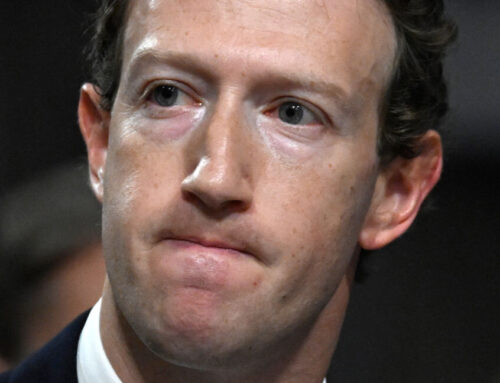Is Cannabis Justice Good Business? Ben & Jerry’s Thinks So
May 21, 2025
In an era when most brands sidestep controversy, Ben & Jerry’s is doubling down on a decades-long bet: that standing up for what’s right isn’t just good ethics. It’s good business.
And now it has data to support that belief.
According to U.S. activism manager Palika Makam, consumer research conducted by the brand shows that people familiar with Ben & Jerry’s social mission are 30% more likely to call it their favorite ice cream. And more than half of those people say the brand’s advocacy led them to take real-world action, whether that’s talking to friends about justice issues, signing a petition or registering to vote. These results come from the company’s annual social mission tracker, a national study run by a third-party research agency.
This year, Ben & Jerry’s launched a national clemency campaign with the Last Prisoner Project, urging governors across the country to release individuals still incarcerated for nonviolent cannabis offenses. In the U.S., Black people are nearly four times more likely than white people to be arrested for cannabis possession, despite comparable usage rates.
As of 2025, 24 U.S. states and Washington, D.C. have legalized adult-use cannabis, and 39 states permit medical use. Yet tens of thousands of people remain behind bars for actions that are no longer crimes in many jurisdictions.
This push wasn’t a one-off 4/20 stunt. It’s part of a broader, multi-year effort to fuse cannabis reform with racial justice—and a case study in how values-based activism can deepen brand loyalty while supporting real policy efforts.
So, is cannabis justice good business? Ben & Jerry’s thinks so.
The Campaign
Ben & Jerry’s 2025 push, dubbed #420ForFreedom, wasn’t built around products or weed-themed flavors. Instead, it focused on a national call for gubernatorial clemency, asking state leaders to release people still imprisoned for nonviolent cannabis offenses.
The campaign, developed with the Last Prisoner Project, emphasized that legalization alone isn’t justice, a message Ben & Jerry’s has voiced for years. As Makam put it, “Legalization without justice is half-baked.”
“Fully baked legalization means cannabis is legal, people who are incarcerated for cannabis are released, their records are expunged, and Black and Brown communities are able to actually reap the benefits of this multi-billion dollar industry,” she said.
Digital assets blended the brand’s iconic whimsy—bright visuals, wordplay—with hard policy facts about incarceration, racial disparities and the need for retroactive relief. But the aim was clear: use Ben & Jerry’s platform to shift public pressure toward clemency boards and governors.
That effort produced real numbers. According to both the brand and the Last Prisoner Project, this year’s campaign drove over 30,000 letters to governors across all 50 states. Their content generated more than 19 million impressions organically across digital platforms.
Stephen Post, strategic communication manager at the Last Prisoner Project, called the partnership “a tremendous asset.” He explained: “Ben & Jerry’s doesn’t just post something and call it a day… They’ve shown up consistently, helping lift up the stories of people still incarcerated for cannabis, like Antonio Wyatt and Robert Deals.”
Post also pointed to past impact, noting that “prior to this year’s campaign, Ben & Jerry’s had already worked to highlight LPP constituent Michael Thompson, who received clemency from Michigan Governor Whitmer.” That history, he said, shows the brand’s activism is not just performative; it’s sustained.
The ROI
Ben & Jerry’s doesn’t run activism campaigns to increase profits, and says it doesn’t even calculate specific ROI metrics for this work. But that doesn’t mean the business case is invisible.
“We take a stance on issues because our founders established the belief that ‘business has a responsibility to give back to the community’ in 1979,” said Makam.
Campaigns tied to the brand’s Social Mission consistently outperform other messaging across paid and organic channels, especially when focused on cannabis or racial justice. And while Ben & Jerry’s doesn’t break out financial returns tied to advocacy, it does track engagement broadly; according to its data, these campaigns are among the brand’s most effective for building meaningful consumer connections.
The deeper impact? People don’t just notice; they act. Ben & Jerry’s says the most common follow-ups from advocacy-aware audiences include talking about the issue, seeking more information, voting and petition-signing.
That kind of movement from awareness to action may be rare in corporate marketing, but for Ben & Jerry’s, it’s become a cornerstone of the brand.
Risk vs. Silence
Corporate activism always carries risk, especially on issues like cannabis, where legality and political will vary dramatically. But for Ben & Jerry’s, staying silent is the bigger gamble.
“It’s not our job to say what is popular. It’s our job to make popular what is right,” said Makam.
The company has taken public stances on trans rights, abortion access and mass incarceration. In that context, cannabis justice is almost mainstream, especially when 88% of Americans support legalization in some form, according to Pew Research.
Still, others say the work can’t stop at clemency.
“Freedom from incarceration is crucial, but without economic empowerment, justice remains incomplete,” said Kika Keith, founder of Gorilla Rx Wellness and co-chair of the Black Los Angeles Cannabis Council. “Right now, Black and Brown entrepreneurs who should be leading this industry are being shut out.”
“Black people make up only about 4% of dispensary owners in California, despite being disproportionately impacted by criminalization,” Keith added. “If corporate allies like Ben & Jerry’s truly support justice, they must also advocate for economic pathways—like establishing dedicated funds—to ensure those most harmed by prohibition have the capital to succeed.”
Most Brands Stay Quiet On Cannabis—Here’s Who Doesn’t
While Ben & Jerry’s pushes for clemency and expungement, most major companies are taking a more cautious or commercial-first approach. But a few are edging into the space.
Amazon stopped testing many job applicants for cannabis and publicly supported the MORE Act. DoorDash has entered the hemp THC delivery space in select cities, following the lead of Uber Eats in embracing cannabis logistics. Edible Brands, the parent of Edible Arrangements, recently launched Edibles.com, a national platform for hemp-derived THC products.
Even X, formerly Twitter, has embraced cannabis more openly than most platforms, allowing advertising in regulated markets, while Meta and TikTok still enforce stricter restrictions.
In contrast, Ben & Jerry’s isn’t selling cannabis or related services. It’s using its voice to advocate for freedom, equity and long-term systems change.
The Bottom Line
Ben & Jerry’s doesn’t just talk about cannabis. It talks about the people left behind by prohibition.
With campaigns centered on clemency, expungement and mass incarceration, the brand has forged a rare bridge between corporate marketing and grassroots justice.
“We can’t take on every issue,” said Makam. “But if we can chip away at racialized mass incarceration—if we can get people out of prison and help dismantle those parts of the criminal legal system—then we’re doing something that matters.”
The question is no longer whether cannabis justice is a safe bet. It’s whether more brands will recognize that now is the time to act—because there’s still a lot of work to be done.
Search
RECENT PRESS RELEASES
Related Post




